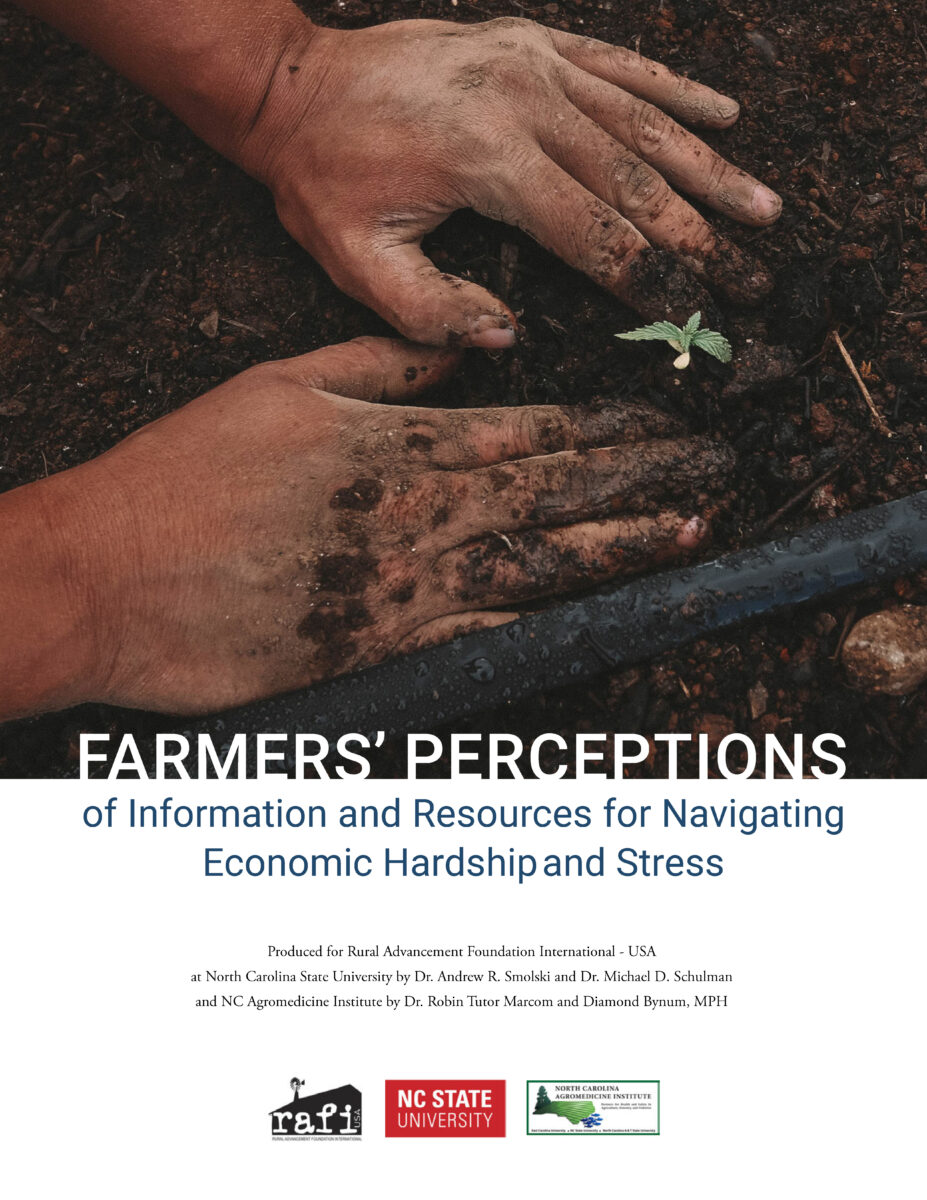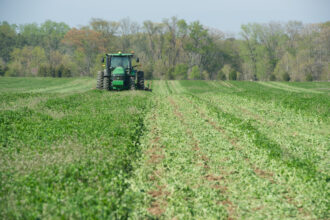Leroy Hardy’s journey into financial crisis began when tight finances kept him from sticking with the schedule of payments on a farm loan. As a fifth-generation farmer and operator of Hardy Family Farm near Sedley, Virginia, Hardy had years of experience growing and marketing produce and cut flowers. But trying to navigate the muddy waters of financial crisis without help left him facing foreclosure of assets.

Hardy eventually reached out to the Rural Advancement Foundation International (RAFI), a nonprofit with long experience in helping farmers in distress. With RAFI’s assistance as a mediator, Hardy was able to come out of the crisis with his assets intact. It was fitting then that when RAFI, along with other partners, was awarded a grant from Southern SARE, Hardy was one of the farmer collaborators included in the research team for the project, “Navigating Financial and Mental Health Crises.”
The idea for the project arose from the experiences of small-scale farmers like Hardy. “Staff from RAFI had been seeing a rise in farmer stress, and they had also seen that the resources available to farmers didn’t address the varied experiences of farmers in financial and emotional crisis,” says Andrew Smolski, a researcher from North Carolina State University who provided support for the project.
The project aimed to reduce the loss of small farms and to alleviate farmers’ emotional stress resulting from financial difficulties. Coordinators believed that gaining an understanding of the differing ways farmers experienced these stressors and where they went for help would help to shape more effective strategies for building and strengthening support programs in the future.
The project focused on farmers from three states: North Carolina, South Carolina and Virginia. “We sought to differentiate farmers’ experiences based upon race so that culturally relevant resources could be developed in the future,” says Smolski.
Hardy’s experiences as a Black farmer illustrate his belief that race influences farmers’ willingness to seek help. “White farmers in financial difficulty seek out help,” he says. “But when people of color are having trouble, you don’t want to let people know you’re having trouble. You suffer in silence.”
That reticence kept Hardy from reaching out sooner for the loan-mediation help from RAFI that eventually resolved his financial crisis. “My family and I went through two years of emotional and psychological trauma before I found help,” he says.
To get at the nuts and bolts of what farmers in crisis experience, project organizers surveyed farmers whom they had identified as having experienced a financial crisis. Thirty farmer-informants comprised their research group; half were Black and half were white. All but one were small-scale farmers who had experienced financial difficulties in the last five years.
“An important finding of our research was that there was a perceived lack of resources to help farmers in distress,” says Smolski. “Farmers also expressed a certain lack of trust in certain institutions to be able to provide helpful resources. They did, however, express trust in other farmers and trust in certain nonprofit institutions. Small-scale farmers felt excluded from various agency programs.”
Drawing from the findings of the research, organizers identified key ways local communities, agencies and organizations could work together to better serve farmers in distress. “It’s important to identify the relevant groups and networks at different geographical scales that could support teams-based collaborations that provide help,” says Smolski.
Building farmer-to-farmer and farmer-led, community-based organizations is another critical way sources of help could be developed.
Results from the study also point to a need to bolster financial and mental health services for small-scale family farmers and their households. “This will entail expanding information and resources for addressing farm financial problems and adding household finances and stress-management information and resources to existing repertoires currently employed by farmer-supporting organizations,” says Smolski.
The study findings also support the future development of “comprehensive toolboxes” service providers might use to address a farm’s complex network of farming practices intertwined with farm finances, household finances and family relationships. “Each farm household faces distinct challenges and should be provided resources and information on a case-by-case basis,” he says. “A support plan should be developed specific to their situation. A case management approach for one-on-one interactions is one possible model.”
As a source of further support for farmer well-being, project organizers developed a website: attra.ncat.org/farmer-well-being/.
For Hardy, the SARE-funded research project and its findings hold personal significance. “I sometimes think that God allows me to go through things so that I can help others,” he says. “Participating in this project was my way of being there to help someone else going through what I went through so that it’s not so much of a painful ordeal for them.”
Want more information? See the related SARE grant and related resources:
- LS20-336 Navigating Financial and Mental Health Crises
- Farmers' Perceptions of Information and Resources for Navigating Economic Hardship and Stress
This material is based upon work that is supported by the National Institute of Food and Agriculture, U.S. Department of Agriculture through the Sustainable Agriculture Research and Education (SARE) program. Any opinions, findings, conclusions, or recommendations expressed in this publication are those of the author(s) and should not be construed to represent any official USDA or U.S. Government determination or policy.
